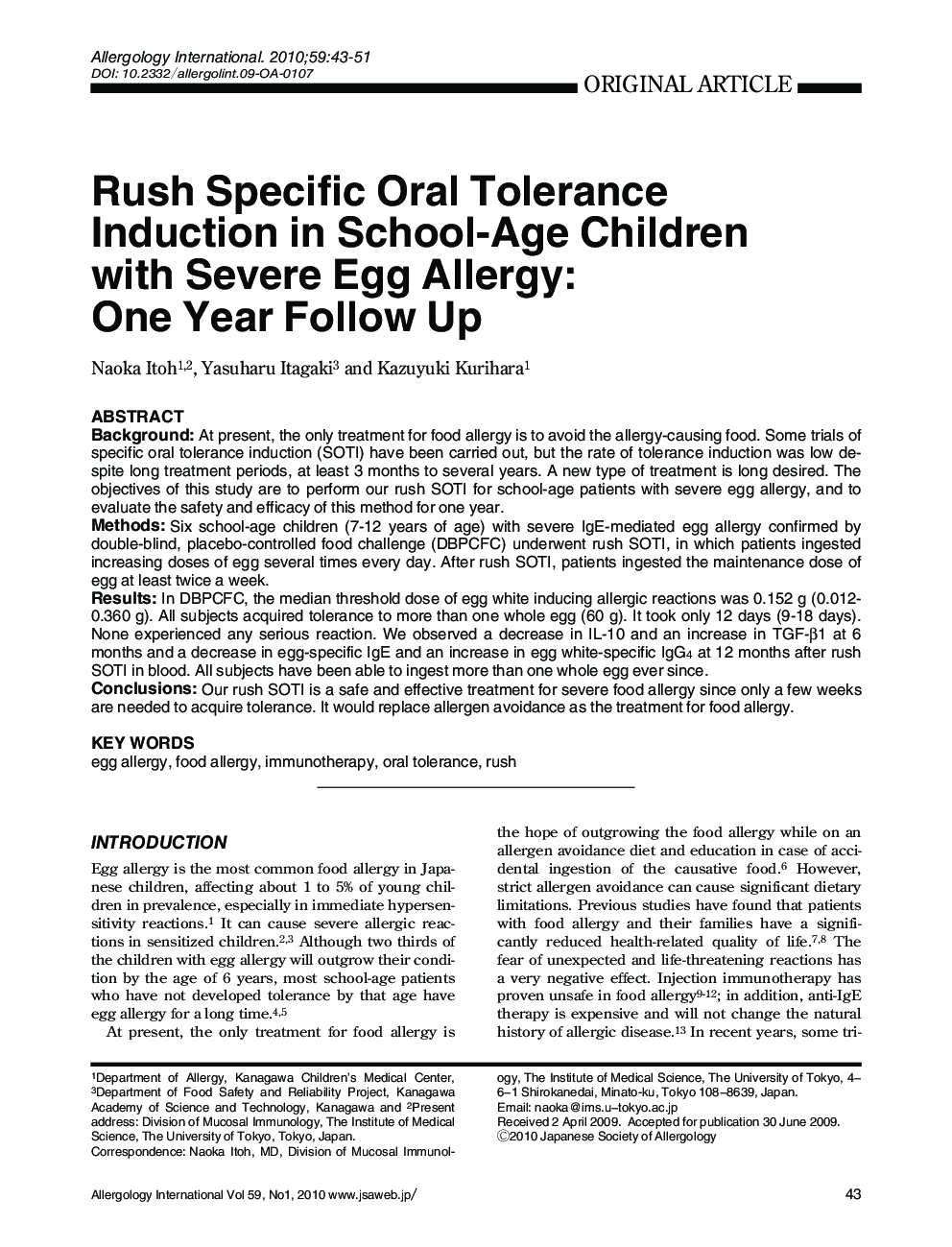| Article ID | Journal | Published Year | Pages | File Type |
|---|---|---|---|---|
| 3340977 | Allergology International | 2010 | 9 Pages |
ABSTRACTBackgroundAt present, the only treatment for food allergy is to avoid the allergy-causing food. Some trials of specific oral tolerance induction (SOTI) have been carried out, but the rate of tolerance induction was low despite long treatment periods, at least 3 months to several years. A new type of treatment is long desired. The objectives of this study are to perform our rush SOTI for school-age patients with severe egg allergy, and to evaluate the safety and efficacy of this method for one year.MethodsSix school-age children (7-12 years of age) with severe IgE-mediated egg allergy confirmed by double-blind, placebo-controlled food challenge (DBPCFC) underwent rush SOTI, in which patients ingested increasing doses of egg several times every day. After rush SOTI, patients ingested the maintenance dose of egg at least twice a week.ResultsIn DBPCFC, the median threshold dose of egg white inducing allergic reactions was 0.152 g (0.012-0.360 g). All subjects acquired tolerance to more than one whole egg (60 g). It took only 12 days (9-18 days). None experienced any serious reaction. We observed a decrease in IL-10 and an increase in TGF-β1 at 6 months and a decrease in egg-specific IgE and an increase in egg white-specific IgG4 at 12 months after rush SOTI in blood. All subjects have been able to ingest more than one whole egg ever since.ConclusionsOur rush SOTI is a safe and effective treatment for severe food allergy since only a few weeks are needed to acquire tolerance. It would replace allergen avoidance as the treatment for food allergy.
